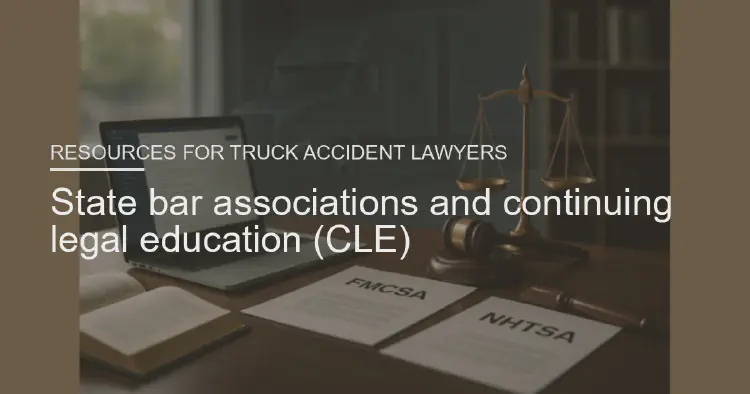
State bar associations and continuing legal education (CLE)
State bar associations and CLE programs provide truck accident lawyers with professional development, ethical guidance, and networking opportunities essential for effective practice.

State bar associations and CLE programs provide truck accident lawyers with professional development, ethical guidance, and networking opportunities essential for effective practice.
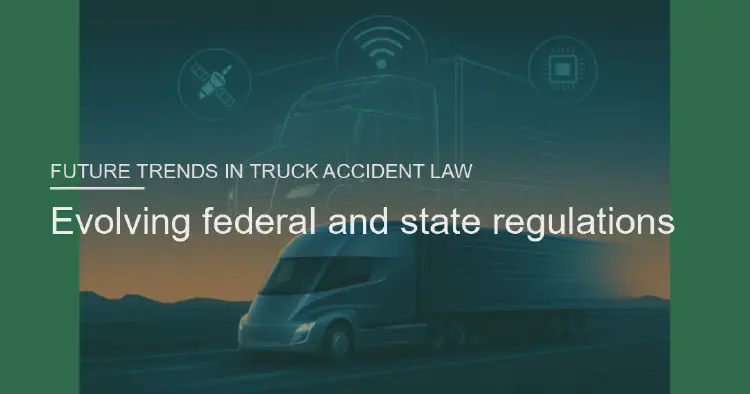
Trucking laws in the U.S. are shaped by both federal and state governments. As technology advances and safety concerns grow, regulations are evolving to address new challenges in the industry.
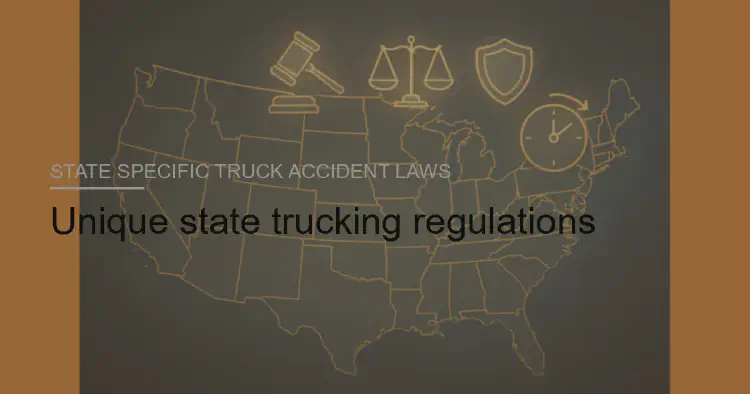
While federal rules under the FMCSA create a baseline for trucking operations, individual states impose additional regulations. These state-specific rules can significantly impact liability and compliance in truck accident cases.
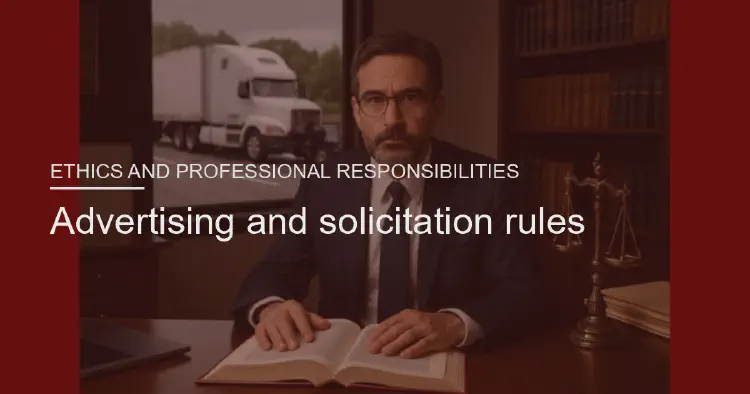
Lawyers may advertise their services, but strict ethical rules regulate how they market and solicit clients. In truck accident law, these rules protect the public from misleading or aggressive practices while preserving professional integrity.
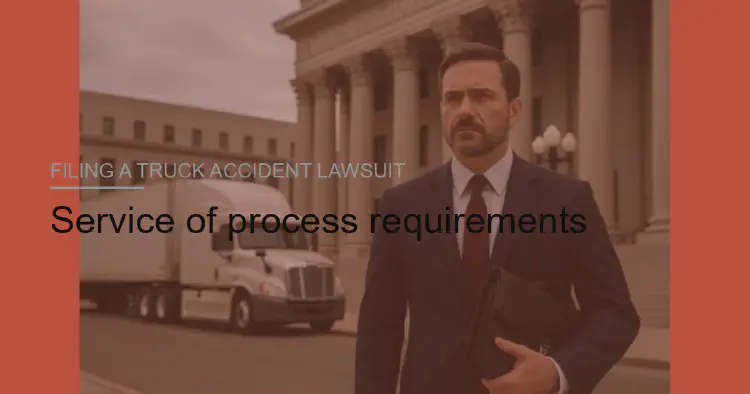
Once a truck accident lawsuit is filed, the defendants must be formally notified. This step, called service of process, ensures that all parties are aware of the legal action and have the opportunity to respond.
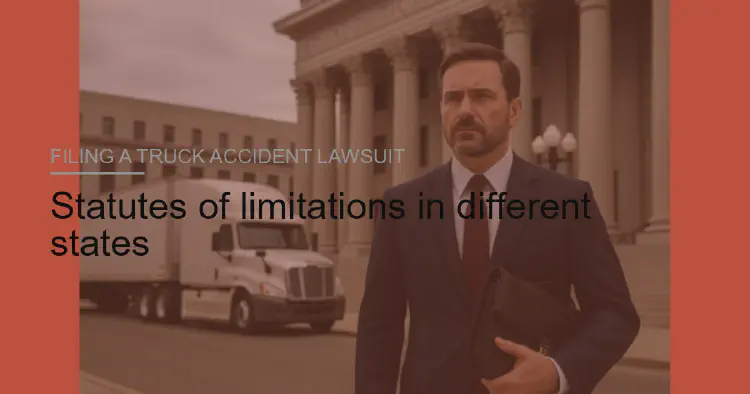
The statute of limitations sets the legal deadline for filing a lawsuit. In truck accident cases, this timeframe varies by state and can determine whether a victim has the right to pursue compensation.